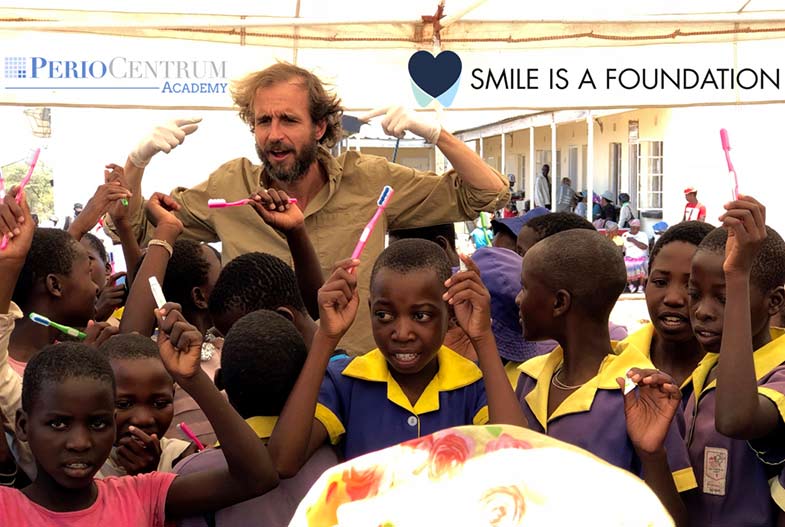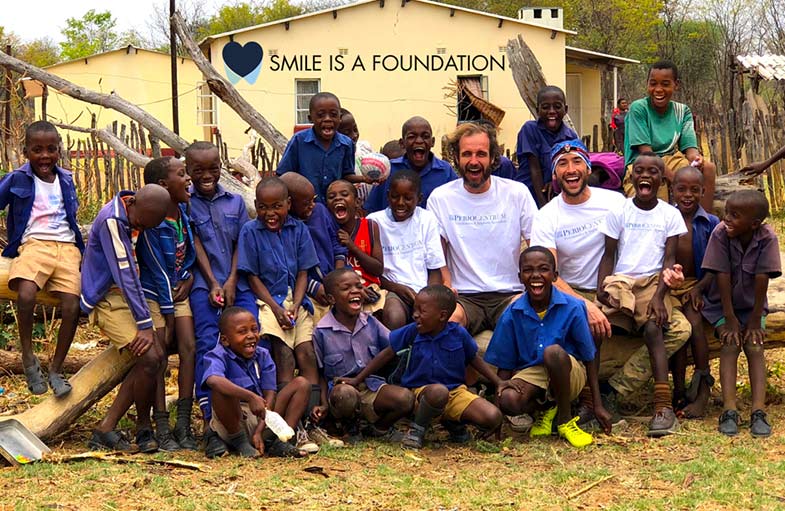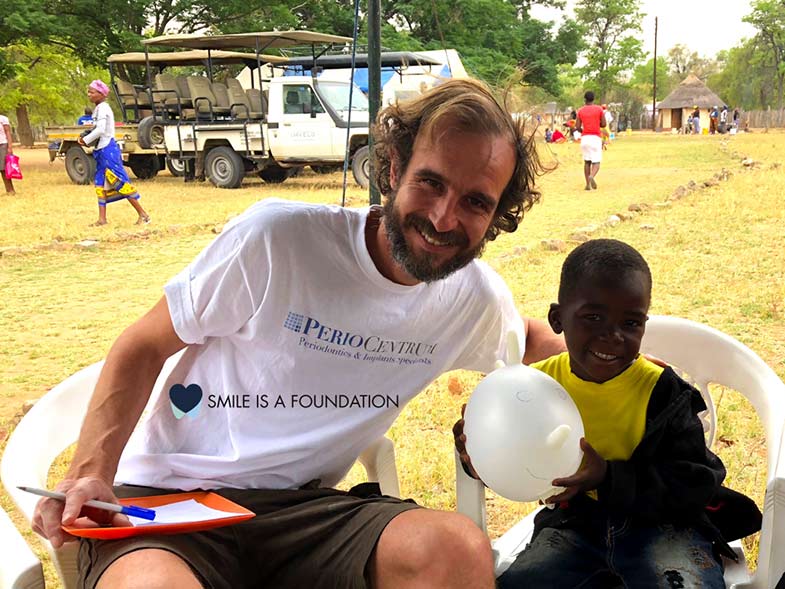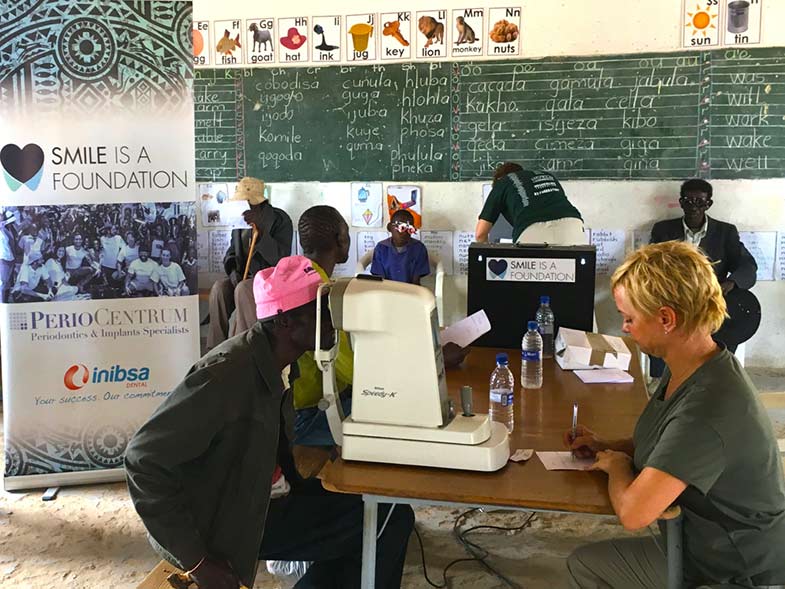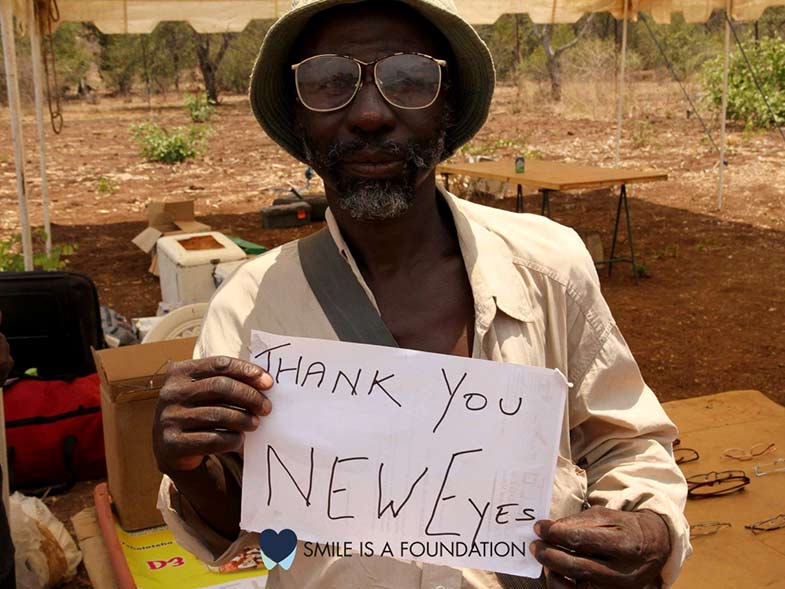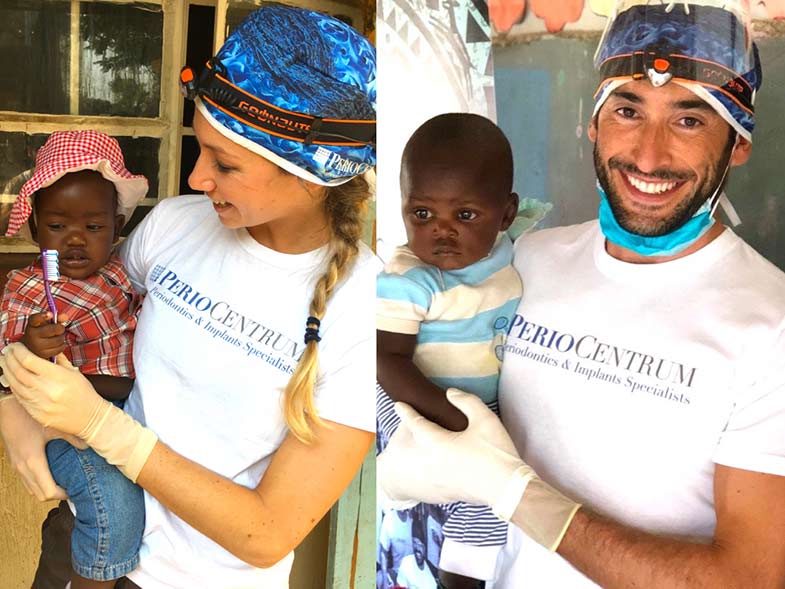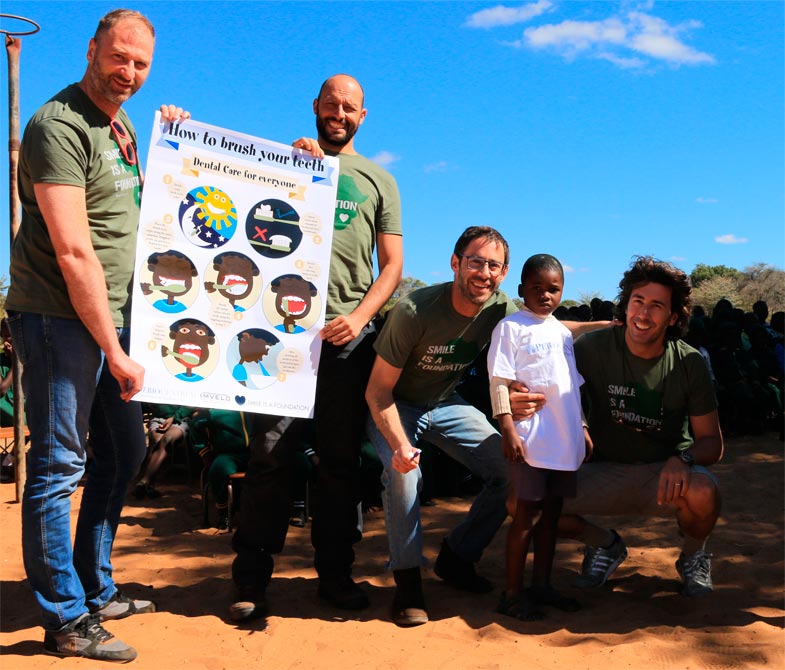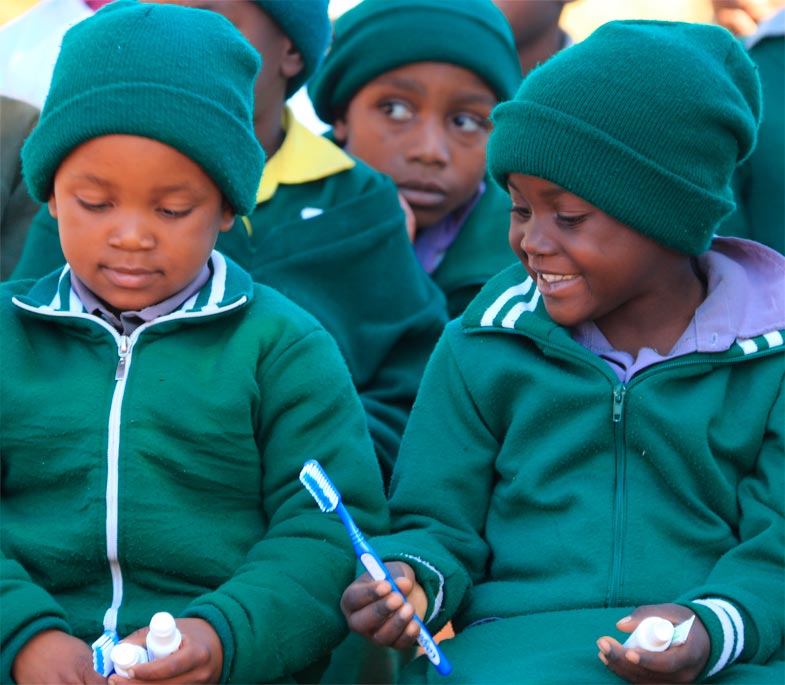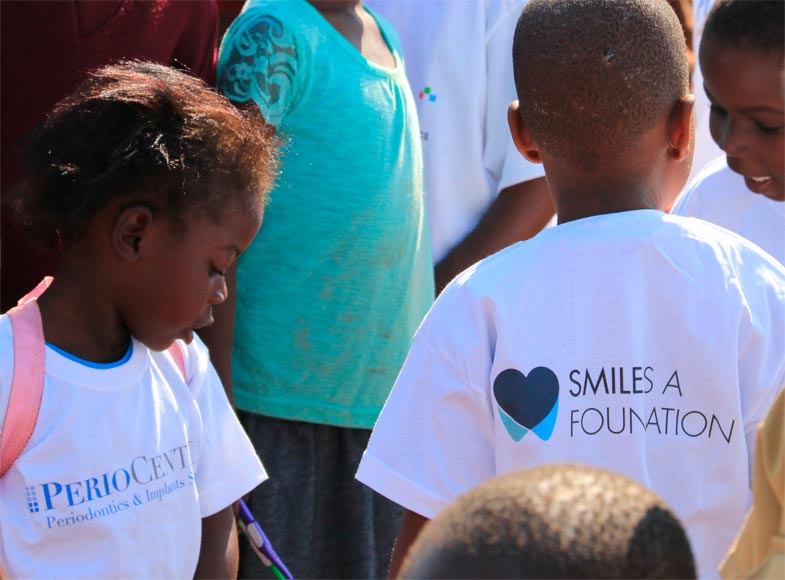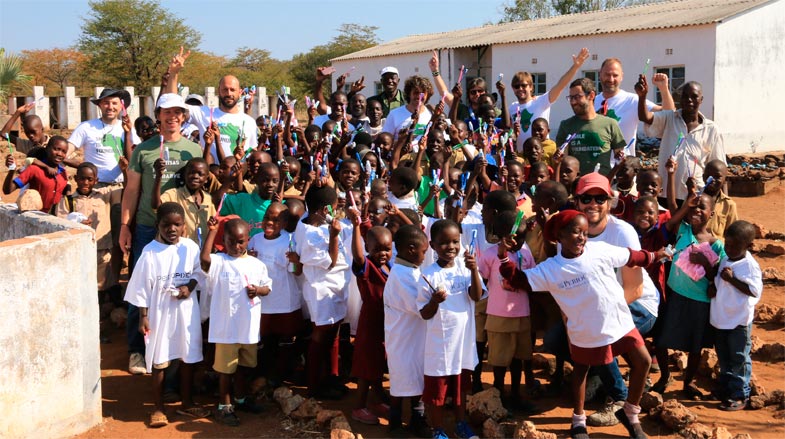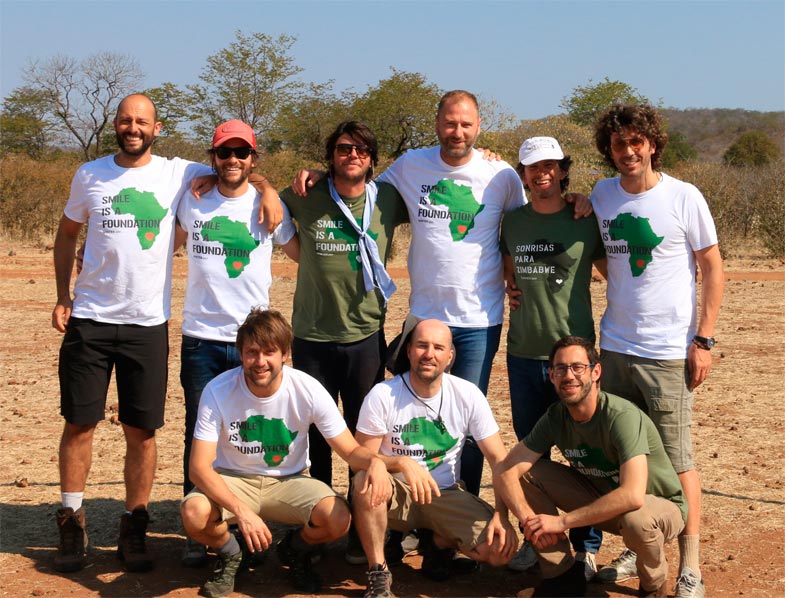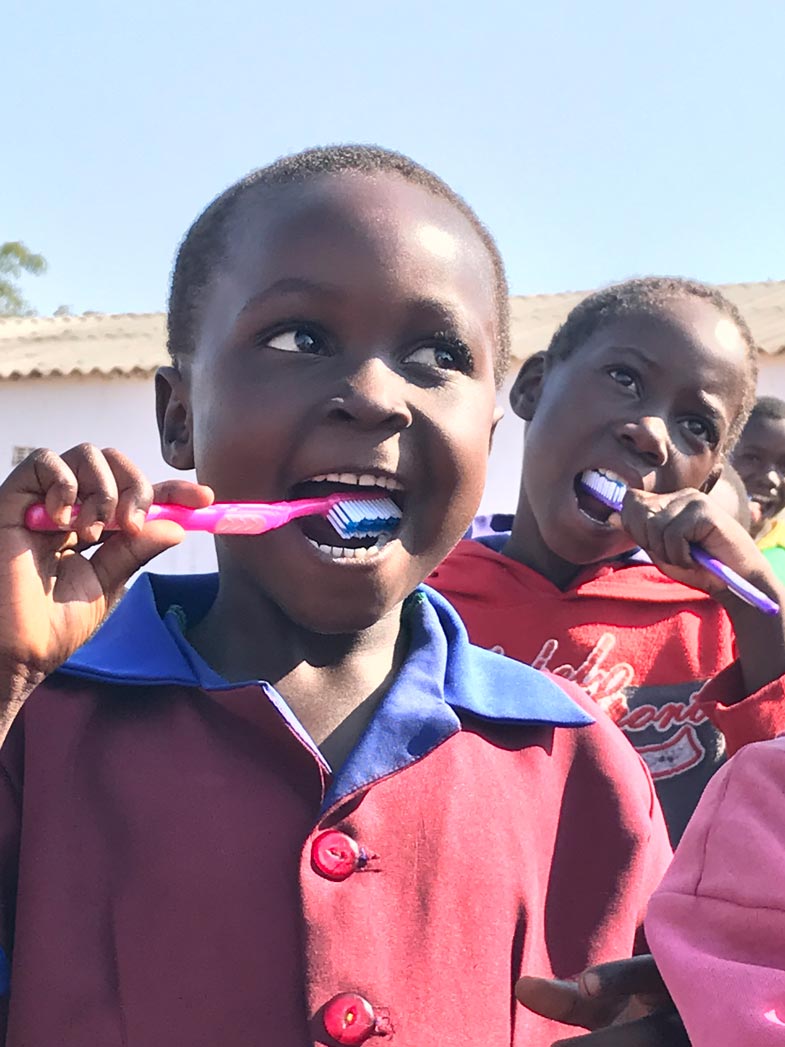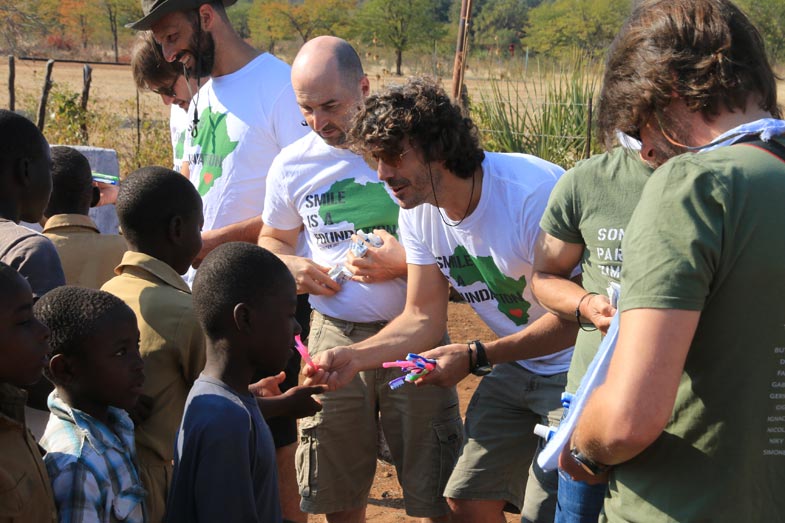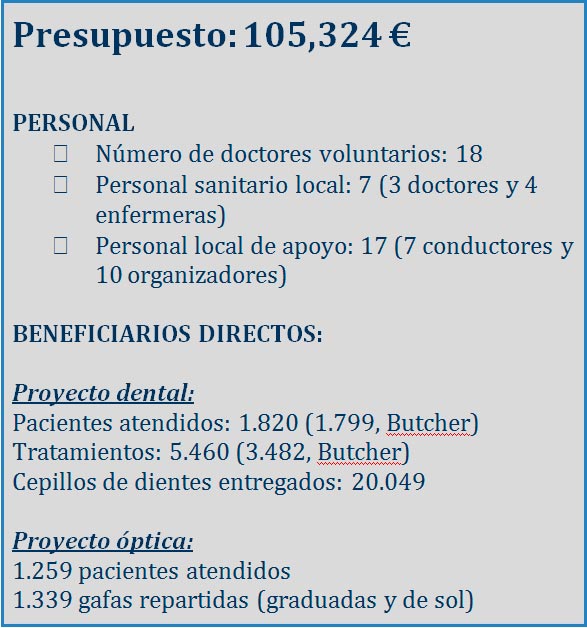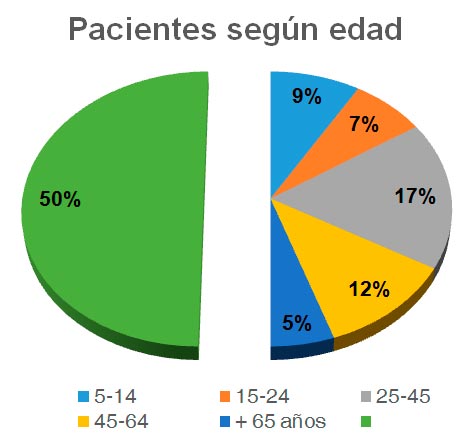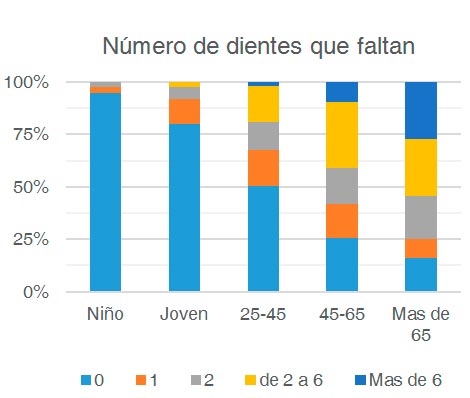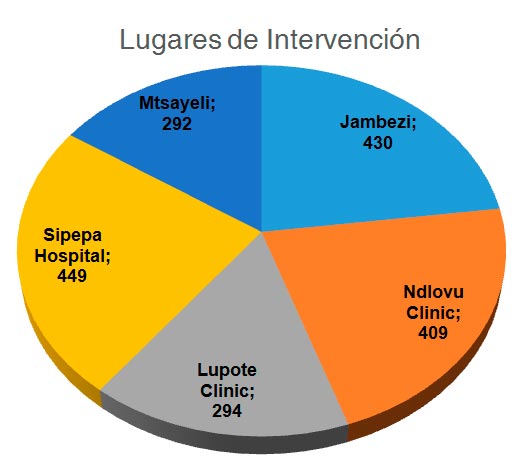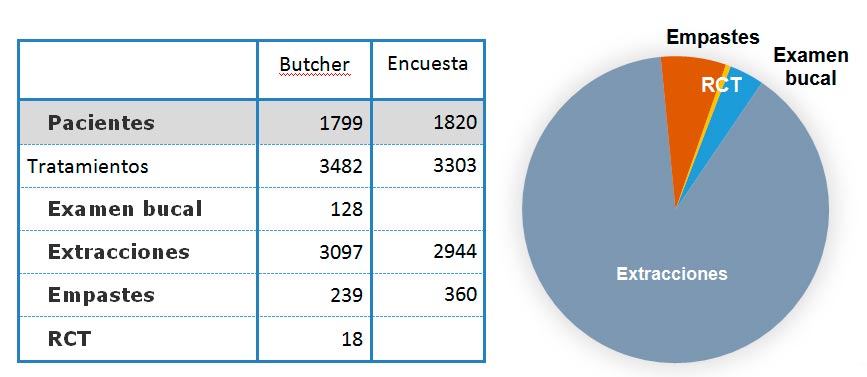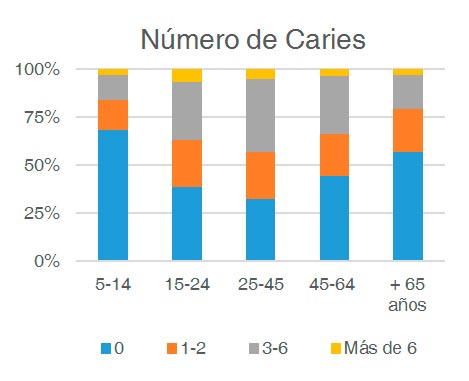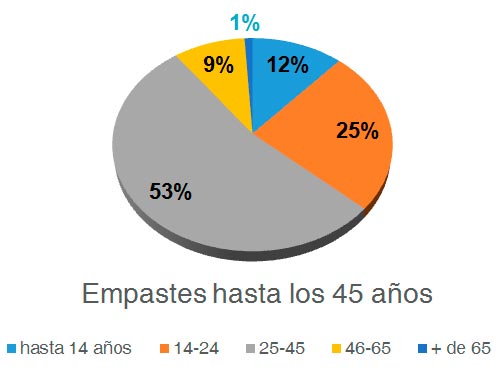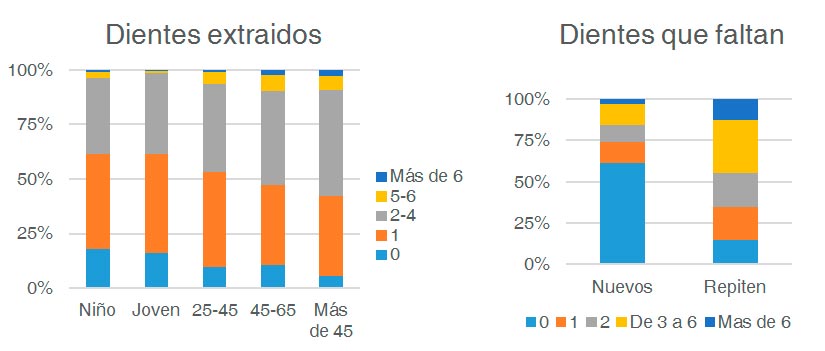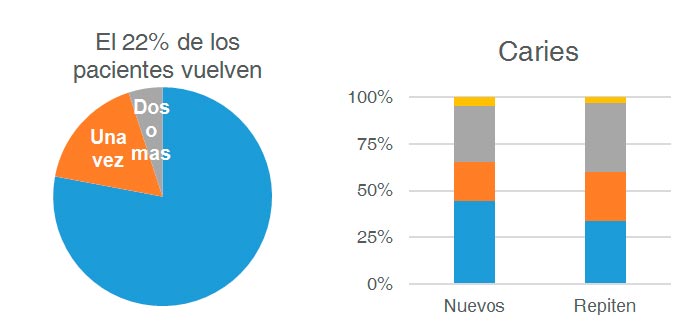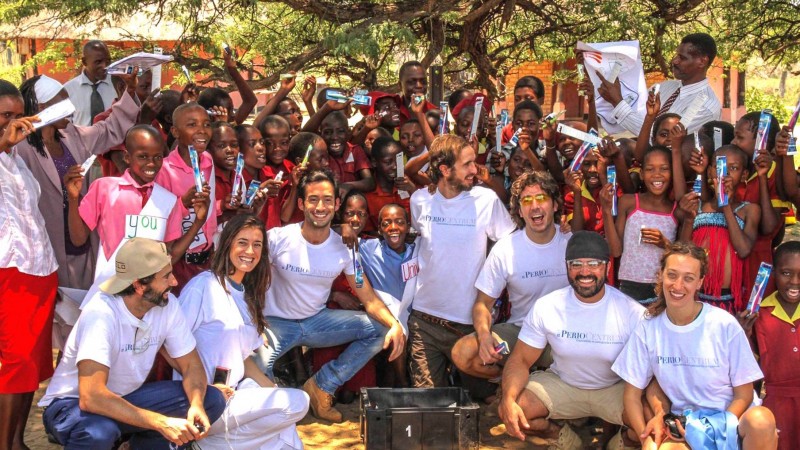
PerioCentrum is a co-founder of Smile is a Foundation. This not-for-profit foundation promotes, organises and coordinates humanitarian assistance projects in biosanitation. Its objective is to develop updates in the area of international cooperation and development in underdeveloped countries. It aims to meet the needs of the people most vulnerable and without access to health services.
Since the began our involvement with this project in 2011, we have conducted eight campaigns on the ground, treated more than 14,000 patients and performed more than 28,000 odontological treatments. In 2015, we began the visual health service and, since then, we have checked the eyesight of 2,166 patients and issued some 3,500 pairs of glasses (both prescription glasses and sunglasses) to members of the local population with eyesight problems. This is a segment of the population that has no access to an alternative oral care or ophthalmology system.
In November, doctors Ramón Lorenzo, Alberto Ortiz-Vigón and Esperanza Gross from PerioCentrum travelled with other fellow dentists and optometrists to carry out a new campaign on the ground in Zimbabwe, visiting various communities and attending to the dental and optical health needs of the local population.
In 2017, the foundation achieved record results in its projects in Zimbabwe since it began to operate in 2011:
At PerioCentrum, we congratulate all of the professionals who make this project possible with their effort and dedication.
Smile is a Foundation continues with its solidarity effort in Zimbabwe and, on this occasion, the foundation carried out a program to encourage good oral hygiene habits with visits to a number of local schools.
Dr. Fabio Vignoletti from PerioCentrum Madrid and Verona travelled with the foundation, where, together with doctors Ignacio Sanz, Simone Bertholdo, Nicola Discepoli and Dino Calzavara and partners Gabriel Ossi, Nicola Quaini and Luigi Carlina, taught the very young children how to brush their teeth and explained to them the guide for good practices to be followed each day. At each centre they visited, they left signs with these explanations so that the very young children could see them at all times.
Without a doubt, this effort to promote oral hygiene habits is of vital importance in order to prevent future complications and minimise the risk of diseases that to a large extent can be avoided with regular brushing.
At PerioCentrum, we wish to thank in particular the company Imvelo Safari Lodges, which, as always, have done an essential job in providing support, help and impetus for the good of these communities and this magnificent country.
In December we held our annual Mobile Dental Safari, which attends to and provide oral and ophthalmological care to people in hundreds of communities around Hwange and Victoria Falls.
The campaign was a huge success, thanks to our team of Spanish, Italian and Zimbabwean dentists, optometrists and nurses, with the support of a massive logistical effort from the residents of Imvelo Safari. This year we have also had the support of the D3 Foundation (US), the Higher Life Foundation (Zimbabwe) and various private donors. In Spain, the suppliers of the dental material and instruments have lent their support to our project and have supplied us with material and instruments at exceptional prices.
In this, our sixth year, our dentists have already treated more than 10,000 patients and given more than 25,000 dental treatments, all in remote rural areas and under challenging conditions.
However, the history of this marvellous project cannot be told on the basis of numbers alone. What is important is the impact that these treatments have on the local population. A number of spectacular things also happened.
The curing of a cancerous jaw tumour. This year, 12-year old Langton Ncube and Dr. Fabio Vignoletti, who had diagnosed him with a cancerous tumour in the jaw four years ago and raised funds in his home town of Verona for his treatment , were reunited. At the Sipepa camp on December 7, Fabio dio el alta a Langton with this toothbrush; the store where the diagnoses were carried out was awash with tears.
The optometry department was set up last year when Pablo came for the first time and saw just 221 patients. This year, with the addition of his colleague Álvaro, the optometry program was expanded and the department saw 1,259 patients, after long days of diagnosis and nights testing second-hand glasses, issuing more than 1,330 pairs of glasses (both prescription and sunglasses). Literally hundreds of older people who for years had been unable to read could now see, and their tears of gratitude also brought all of us to tears. We cannot forget the young woman who returned to give “Dr Pablo” two mangos as a sign of her appreciation because, with her new glasses, she could learn to read again and return to school.
Then there is Elke, the professional from the German travel industry, so inspired by all of the stories we have told her, who returned to her country and collected hundreds of pairs of glasses in the city of Wesel and later organised a complex system of transport to Zimbabwe using non-conventional means so that Pablo could us them with his patients.
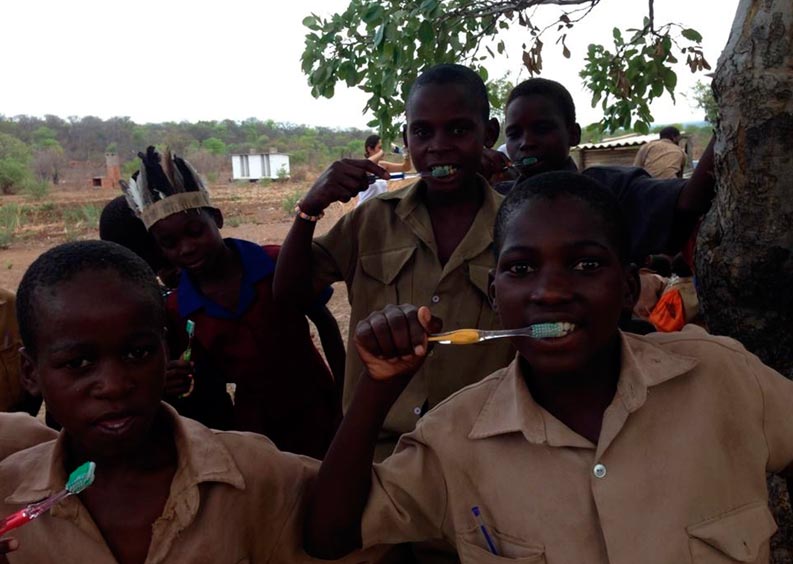
Logistics is one of the keys to the success of our project. we would not be able to tell our story without recognising the extraordinary effort of the Imvelo support team, which starts to work tirelessly a number of weeks before the start of the Safari de Dentistas. On days when procedures are scheduled, the start work at 4am to guarantee that all logistics needed to arrange this operation work: from providing sandwiches and beverages to reviewing the rinsing of anaesthetic cartridges and syringes, gauze and confirm the correct provision of material and equipment.
In other years, we have spent a day getting to know the area; however, this year the team of dentists has not had even one day of rest: we moved all of the material and equipment after working at the Lupote clinic from Dete to the Bomani, and then the following day to Sipepa Hospital. Patients were waiting for us.
One great success we have had this year has been to significantly reduce the time doctors spend organising queues of patients, a task that in previous years required too much time and effort from the whole team, causing us to waste time that this year we have been able to spend attending to patients.
At the end, the Spanish, Italian and Zimbabweans were bid farewell with hugs to the refrain “See you next year!!!”.
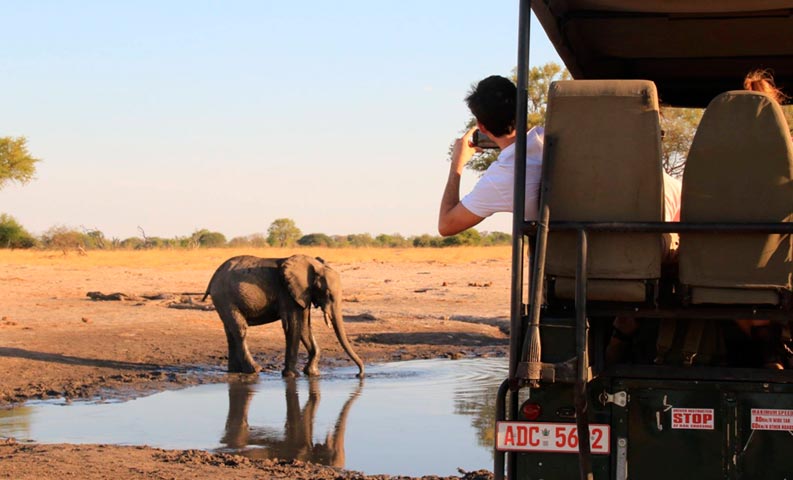
Smile is a Foundation officially became a foundation in 2016. Smile is a Foundation has been added to the official register of the Single Protectorate of Foundations of the Ministry of Education, Culture and Sport as a “organisation with private legal personality incorporated as a not-for-profit organisation that has allocated its assets in the long-term to use in the general interest”.
The Single Protectorate of Foundations has state competence and its objective is to ensure the correct exercise of the laws of the foundation and of the laws of the constitution and operation of foundations, providing support, promotion and advisory services.
Its incorporation as a foundation will help us reinforce aspects of organisation, coordination, funding and governance without which no project can succeed in the medium-term.
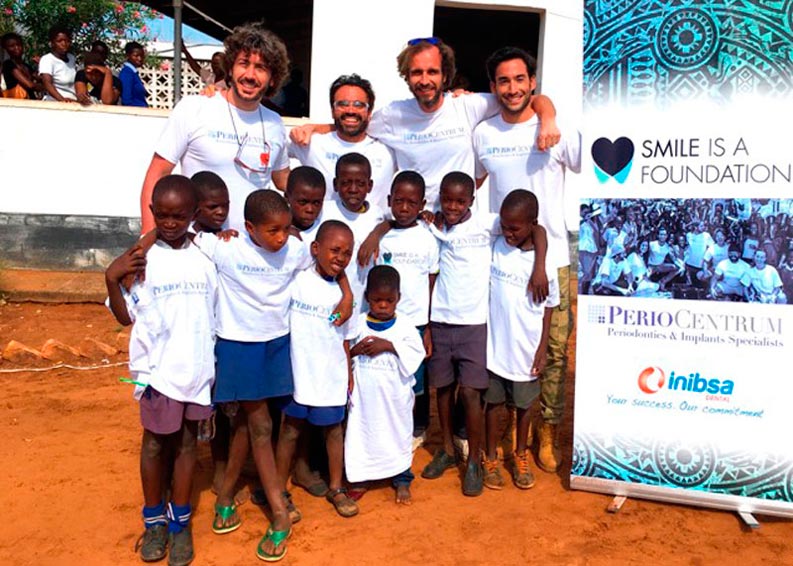
On 14 July 2016 we presented the foundation with a event to raise funds among friends, volunteers and relatives. These response from these people in terms of numbers and their role in the success of the project were amazing. As well as being an enjoyable experience, the event allowed those in attendance to meet many of the volunteers who make the project possible.
On 29 September 2017, the foundation held this meeting again. It was well-attended and again raised funds through auctions, draws, the sale of T-shirts, etc. to continue developing humanitarian projects on the ground.
We must always remember to thank all those in attendance, sponsors, organisers and everyone else who helps this dream slowly become a reality.
This year, a number of material and equipment manufacturers have responded with great generosity to our request to contribute to Smile is a Foundation. We have secured help from six of the largest companies in the sector, which have provided us with much of the material we take with us to Zimbabwe in order to be able to treat our patients there. Together, these businesses have made donations – either in kind or through discounts on the cost of materials – of more than €5,000.
Other businesses have also offered us their help in the form of donations of material, raising the profile of our project. The collaboration of every one of us who works in oral and optical health is very important to us and drives us on to continue striving to improve and expand this project. A big “thank you” to them as well.
We would like our projects to encompass more people; we are all working on this. We have the best team, with businesses and individuals who have placed their faith in us. We will not let them down.
When it comes to dreams, our dreams are big: some day, we want to provide cataract removal operations, create a workshop to assemble eyeglasses in camps themselves, provide prostheses to restore basic chewing functions and collaborate with organisations to help build wells for the population, build infrastructure to develop education and promote primary health care posts. In short, our aim is to improve living conditions in communities that are the recipients of cooperation.
Five years ago, it was also our dream to treat 8,500 patients, conduct 20,000 odontological treatments and distribute 300 pairs of prescription glasses and more than 1,000 sunglasses to members of the local population with eyesight problems. At Smile is a Foundation, we are clear and have shown that dreams can come true.
Atendemos a pacientes de todas las edades
Since we began to work on this project in 2011, we have conducted six campaigns on the ground, treated more than 10,000 patients and carried out 25,460 odontological procedures. We began our ophthalmology service in 2015, and to date we have checked the eyesight of close to 2,000 patients and issued some 2,640 pairs of glasses (both prescription glasses and sunglasses) to members of the local population with eyesight problems.
This is a segment of the population that has no access to alternative oral or ophthalmological care.
The “On the Road” surgery caravan
We have set up a mobile caravan to provide care to patients. On the road. One day of procedures and another of travel to be able to meet demand across the area where we operate. The areas of intervention are in some of the areas most frequented by the local population. Local clinics are not well-equipped either in terms of medical equipment and assistance; however, they serve as a basis to set up our work camp in a day and provide the population with adequate care. We take all of the material, instruments and the team. The government of Zimbabwe supplies a number of dentists and nurses, who provide us with support and help us make the process efficient./p>
In our most recent campaign, in December 2016, we attended to 1,874 patients. More than one-third of these patients (35%) were people between 25 and 45 years of age.
Each year, we set up clinics in five different areas, all of which border onto the natural park between Victoria Falls and Bulawayo. Often, the clinic is erected in a school in the area, since schools are areas where the local population tends to congregate.
However, just 17% of the patients we see are children and adolescents. The rest are relatives and residents of the area who visit the Smile is a Foundation caravan, their only opportunity – once a year – to receive advice and dental and oral care.
Prevention among the young is crucial
Although we attend to all patients who need us, we have to work particularly hard with patients under the age of 25. The dental health of our patients up to the age of 25 is not particularly serious, with just 20% of them having lost one or more teeth. But from the age of 25 onwards, just 50% still have all of their teeth and close to 20% have already lost three or more teeth. Among patients over the age of 45 this proportion increases to 40%, and by the age of 65 more than half have lost three or more teeth.
In a country such as Zimbabwe, where the most basic oral health services are not available, oral disease soon leads to tooth loss. As a result, the distribution of the number of cavities is, strangely, similar in the first and final stages of life: the proportion of children aged 5 to 14 with cavities is similar to the proportion of those over 65, with the difference that the adults have lost teeth afflicted with cavities, with the resulting impact on their well-being and general health.
Large percentage of new patients
78% of patients we saw in the 2016 campaign were first-time patients (confirm that this figure was arrived at in an appropriate manner), while 17% had been seen by us once and just 5% on more than one occasion.
In view of the precarious economic and socio-sanitary situation they face, for many patients it is impossible to recover affected teeth. As a result, the only option available to them to avoid pain and infections is tooth extraction.
Our aim is to provide sustained, recurring treatment on the ground, providing follow-up for the whole population so that the patients who are now children and young people have options when it comes to preventative and palliative treatments that allow them to take better care of their teeth for when they reach adulthood.
Indeed, more than half of the fillings inserted in the 2016 campaign were for adults between the ages of 25 and 45, when the teeth affected could still be saved. After that age, it is difficult to recover teeth affected due to the progression of carious conditions in most cases with damage to the nerve and extensive damage to the tooth structure.
Nevertheless, the analysis of extractions according to age group shows that among children and adolescents the oral health situation is also critical. Within this group, teeth have had to be extracted from more than 80% of patients within these age brackets, a very high rate. Some 40% have had more than two teeth removed. This corroborates the need to redouble efforts in the prevention campaign aimed at these age groups, as we do in schools in the area each year.
Conclusions:
- In the 2016 campaign, most of the patients were new (this is to be confirmed).
- According to records, most procedures are tooth removals due to the widespread prevalence and long progression of dental disease.
- Most reconstruction procedures are performed on children and young adults.
- Perhaps a methodology for monitoring some patients should be developed for next year.
- Perhaps it would be of interest to segment the procedure according to age group.
Objectives to be developed:
- The prevention of oral diseases via instruction for teachers and children in healthy eating habits and oral hygiene, providing graphic material and hygiene instruments.
- Training for qualified health professionals in situ and training programs offered through residencies in Spain for professionals selected for their commitment to the project.

